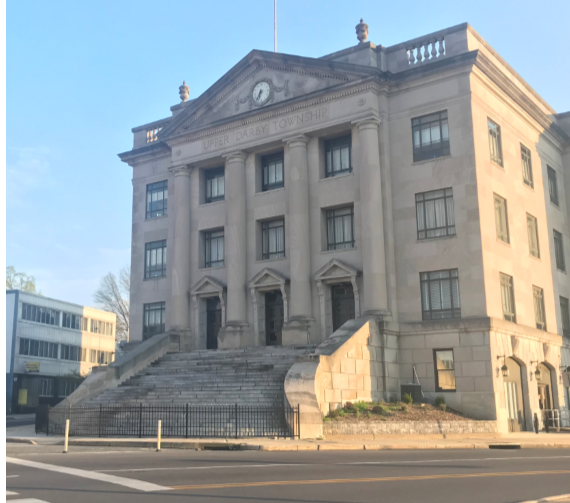Confidential Audit Details Upper Darby Mistakes That Led to Unpaid Parking Ticket Fiasco

The Delaware Valley Journal obtained a copy of a confidential audit of the Upper Darby parking ticket scandal that resulted in a class action lawsuit lodged against the township.
The audit, really more of a report by the accounting firm Brinker Simpson, does not include some of the information that most people would like to know, such as exactly how many parking tickets did not reach the courts and how much money did the township fail to collect as a result.
Instead, it details how employees failed to send the tickets to the courts after a software change and that there appeared to be no oversight from the township administration under Mayor Barbarann Keffer. Keffer did not respond to voicemail or email requests for comments on Wednesday.
“Before January 2021, there were no issues with unpaid parking tickets filed with the (courts),” the report said. “The change to the new Passport software system was not managed successfully, and there appears to have been no centralized decision-making. Our analysis indicates the township lacked the project management procedures and internal controls to prevent the breakdown that occurred as it related to the unpaid parking tickets and the failure of Upper Darby to timely submit the citations to the (courts)…the transition from the old system to the new system was not successful.”
The audit said, “The internal controls in the Parking Department are currently unsatisfactory to safeguard township assets, and we are making recommendations to clearly define levels of responsibilities through documented procedures and financial oversight.”
Also, “we were not able to identify a project manager or project team responsible for implementation of a strategic plan a schedule or oversight to ensure new software would have the functionality, integration and technical support needed….”
The audit said the township had two IT consultants who reported to two different managers.
In January 2020, the parking director was appointed as director of parking enforcement, and the audit said her emails were not forwarded. Also, the new program, Passport, did not have a direct interface with the courts, and it still doesn’t, the audit said.
And the parking department did not follow the court-required process of ensuring ticket batches were received. The last files the courts received were in April 2021, until those sent in 2023.
In May 2022, Keffer and her administrative officer took steps to make parking violations civil rather than criminal issues.
The audit said that from 2016 to 2020, revenue from parking meter fines increased by $207,075. Parking lot revenue and district court fines decreased by $73,000 but included licenses and inspections.
In 2022, citation revenue increased by $130,000 to $599,433.
“Our findings suggest that a lack of communication and centralized oversight, restrictive access to IT support, and lack of internal controls and documented procedures led to the failure of parking tickets being filed timely with the state,” the audit said. “Evidence suggests that there was not a clear understanding of the complexities of the administration of the department that relied on consistent communication with (the courts), police, and IT, especially when adding new software.”
Constable Jack Kelly asked DA Jack Stollsteimer to investigate the parking ticket mess. Kelly said there are 15,000 to 22,000 unpaid parking tickets docketed most years.
“They bypassed the process and never sent anything to the courts,” he said. And people who did not their tickets paid never received their court summonses.
And then some cars got “booted,” he said.
“What gives you the right to boot somebody who has not been before a judge?” Kelly asked.
Former Upper Darby Mayor Tom Micozzie blamed Keffer for firing all the people who knew how the township was run immediately after taking office.
“That’s a problem,” said Micozzie. “A serious problem. How can you run a $98 million corporation (the township) with 427 employees? I get you’re entitled to your own administration, which really means your CAO…But then you get into firing the L&I, the finance director…I would not have had him out on the first day, in the middle of budget.”
Council President Brian Burke said a court clerk reported the township suddenly sent 18,000 unpaid tickets through. At $35 a ticket, that would be $630,000 in revenue uncollected, not to mention additional penalties.
“I believe there’s a lot of problems,” he said. During a council meeting, Burke pressed solicitor Sean Kilkenny about why the township did not respond proactively to a Feb. 7 letter from the court about the missing parking tickets, Broad + Liberty reported. The Delaware County Court administrator then sent another letter about the tickets on May 1.
Vince Rangione, who had been the township’s chief administrative officer, left office in January after months of controversy and secured a severance deal from the township that allowed him to keep his salary through July 31 and health benefits until the end of the year.
The confidential report includes his memos to staff telling them they could not ask the IT people for help without permission.
“No employee is to contact (the person) directly unless authorized by Scott (Alberts),” Rangione wrote in that memo. Alberts is the director of administrative services.
Burke, who switched from Democrat to Republican and is running for mayor, believes he can do a better job. Keffer, who was arrested for DUI and spent time in rehab, is not running again. Democrat Edward Brown, the current school board president, will face off against Burke this fall.
“There’s nothing confidential about (the audit),” Micozzie added. “A lot of people are pushing for it. They want to see the audit.”


